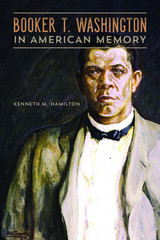
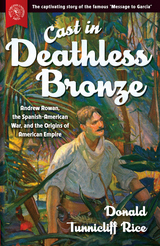
Donald Tunnicliff Rice reveals the facts behind the story of “A Message to García” while using Rowan’s biography as a window into the history of the Spanish-American War, the Philippine War, and the Moro Rebellion. The result is a compellingly written narrative containing many details never before published in any form, and also an accessible perspective on American diplomatic and military history in the late nineteenth and early twentieth centuries.
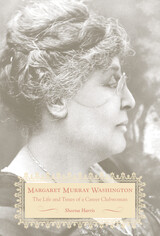
Born enslaved in 1861, by 1892 Margaret Murray Washington of Macon, Mississippi, married the twice-widowed race leader Booker T. Washington and joined the ranks of the rising black middle class. While one cannot discount the accomplishments of her storied husband, Washington’s own successes warrant further exploration. In this first biography of Margaret Murray Washington, author Sheena Harris discusses Washington’s importance as an active clubwoman, educational reformer, and integral partner to her husband and his success with the Tuskegee Institute.
Individual black, female leadership continues to be a blind spot in much scholarly historical literature. Washington was an important educator and clubwoman whose influence emanated from her own planning and actions. As Lady Principal, Washington was sincere and earnest in her campaign to improve Tuskegee Institute. She also transformed her community through her local club organizations. In addition, Washington cofounded the National Federation of Afro-American Women (1895) and the National Association of Colored Women (NACW) (1896). Harris illustrates how Washington improved race relations as a whole through local and national organizations such as the Tuskegee Woman’s Club, the NACW, and 1922 creation of the International Council of Women of the Darker Races (ICWDR). Harris explains clearly that Washington took her leadership positions seriously and strategically worked to expand opportunities for blacks through such organizations.
Washington’s life provides a glimpse into the inner workings of the Black Women’s Club Movement and illuminates the experiences of a race woman who came of age during the Jim Crow South. Harris’s biography is a convincing portrait of an under-studied black woman in the early civil rights movement and places Washington within the pantheon of other important women of the era.
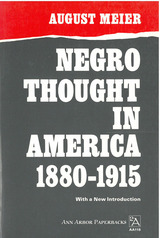
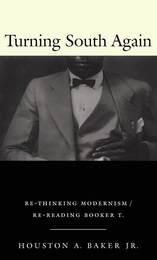
From the holds of slave ships to the peonage of Reconstruction to the contemporary prison system, incarceration has largely defined black life in the United States. Even Washington’s school at Tuskegee, Baker explains, housed and regulated black bodies no longer directly controlled by slave owners. He further implicates Washington by claiming that in enacting his ideas about racial “uplift,” Washington engaged in “mulatto modernism,” a compromised attempt at full citizenship. Combining autobiographical prose, literary criticism, psychoanalytic writing, and, occasionally, blues lyrics and poetry, Baker meditates on the consequences of mulatto modernism for the project of black modernism, which he defines as the achievement of mobile, life-enhancing participation in the public sphere and economic solvency for the majority of African Americans. By including a section about growing up in the South, as well as his recent return to assume a professorship at Duke, Baker contributes further to one of the book’s central concerns: a call to centralize the South in American cultural studies.
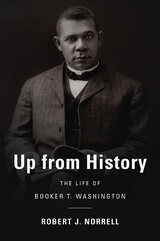
Since the 1960s, Martin Luther King, Jr., has personified black leadership with his use of direct action protests against white authority. A century ago, in the era of Jim Crow, Booker T. Washington pursued a different strategy to lift his people. In this compelling biography, Norrell reveals how conditions in the segregated South led Washington to call for a less contentious path to freedom and equality. He urged black people to acquire economic independence and to develop the moral character that would ultimately gain them full citizenship. Although widely accepted as the most realistic way to integrate blacks into American life during his time, Washington’s strategy has been disparaged since the 1960s.
The first full-length biography of Booker T. in a generation, Up from History recreates the broad contexts in which Washington worked: He struggled against white bigots who hated his economic ambitions for blacks, African-American intellectuals like W. E. B. Du Bois who resented his huge influence, and such inconstant allies as Theodore Roosevelt. Norrell details the positive power of Washington’s vision, one that invoked hope and optimism to overcome past exploitation and present discrimination. Indeed, his ideas have since inspired peoples across the Third World that there are many ways to struggle for equality and justice. Up from History reinstates this extraordinary historical figure to the pantheon of black leaders, illuminating not only his mission and achievement but also, poignantly, the man himself.
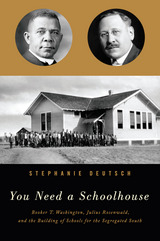
Washington, though widely admired, had weathered severe crises both public and private in his fifty-six years. He had dined with President Theodore Roosevelt and drunk tea with Queen Victoria, but he had also been assaulted on a street in New York City. He had suffered personal heartbreak, years of overwork, and the discouraging knowledge that, despite his optimism and considerable success, conditions for African Americans were not improving as he had assumed they would. From within his own community, Washington faced the bitter charge of accommodationism that haunts his legacy to this day. Despite their differences, the two men would work together well and their collaboration would lead to the building of five thousand schoolhouses. By the time segregation ended, the “Rosenwald Schools” that sprang from this unlikely partnership were educating one third of the South’s African American children. These schoolhouses represent a significant step in the ongoing endeavor to bring high quality education to every child in the United States—an ideal that remains to be realized even today.
READERS
Browse our collection.
PUBLISHERS
See BiblioVault's publisher services.
STUDENT SERVICES
Files for college accessibility offices.
UChicago Accessibility Resources
home | accessibility | search | about | contact us
BiblioVault ® 2001 - 2024
The University of Chicago Press









